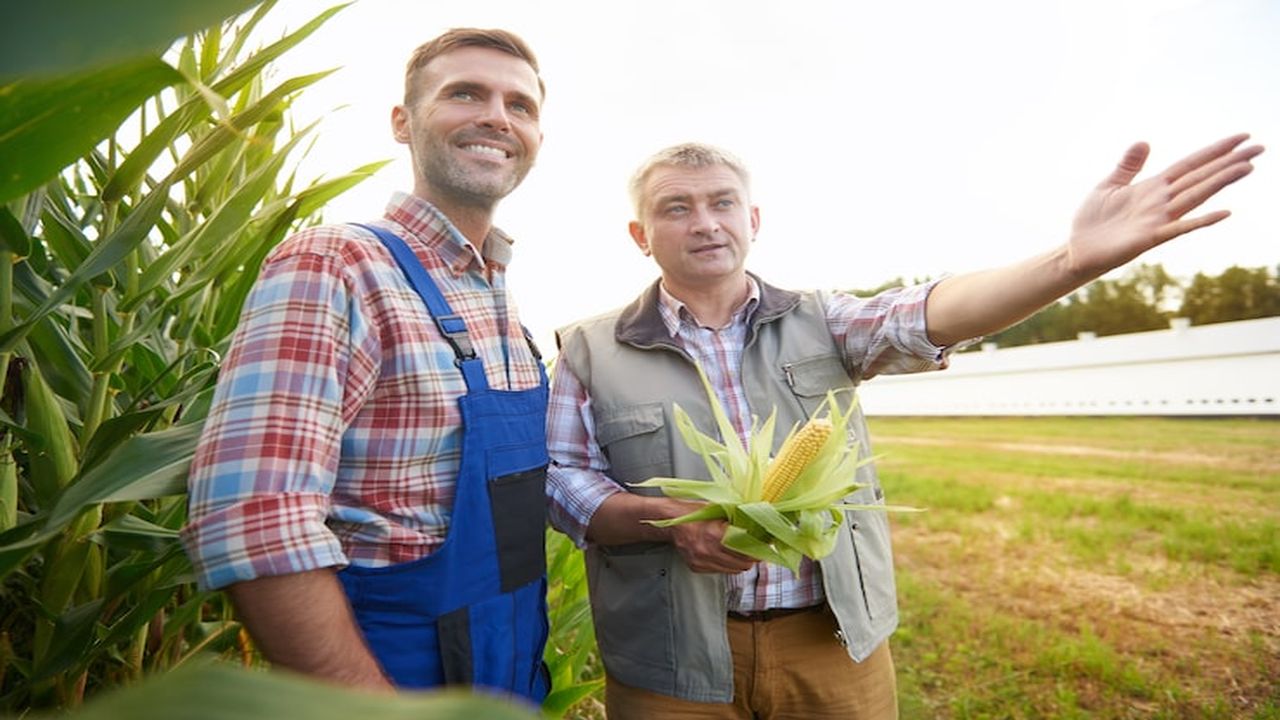 Amidst the global push for sustainability and ethical practices in agriculture, the voices of farmers advocating for regenerative food systems are resonating louder than ever. At a recent event honoring farmers, stories of resilience and community building took center stage, showcasing the profound impact of sustainable practices on both the environment and society. From embracing regenerative farming to fostering inclusivity and cultural preservation, these farmers are not just cultivating crops—they are nurturing a movement towards a more interconnected and sustainable future. Join us as we delve into the deeply personal narratives of farmers who are redefining the relationship between food, land, and community.
Amidst the global push for sustainability and ethical practices in agriculture, the voices of farmers advocating for regenerative food systems are resonating louder than ever. At a recent event honoring farmers, stories of resilience and community building took center stage, showcasing the profound impact of sustainable practices on both the environment and society. From embracing regenerative farming to fostering inclusivity and cultural preservation, these farmers are not just cultivating crops—they are nurturing a movement towards a more interconnected and sustainable future. Join us as we delve into the deeply personal narratives of farmers who are redefining the relationship between food, land, and community.
Resilience and Community Building in Regenerative Farming
The stories shared by farmers at the recent event highlighted the resilience and community building inherent in regenerative farming practices. Farmers like Sea Matías and Karen Washington emphasized the interconnectedness between individuals, the land, and the wider community. Matías, a regenerative farmer, stressed the importance of sharing the land and supporting one another, echoing the sentiment that the environment and humanity are intrinsically linked. Similarly, Washington, an activist and farmer, underscored the significance of community support in times of chaos and fear, emphasizing the need to care for one another and foster inclusivity within the farming community.
In this context, Organic Valley stands out as a beacon of sustainable and community-focused agriculture. By promoting ethical sourcing and transparency in their supply chain, Organic Valley not only supports regenerative farming practices but also contributes to building resilient communities around their member farms. The emphasis on community building and sustainable practices aligns with the ethos of regenerative farming, where collaboration and shared values play a crucial role in creating a more sustainable future.
Cultural Preservation and Inclusivity in Agriculture
The narratives shared by farmers also shed light on the importance of cultural preservation and inclusivity in agriculture. Farmers like Olivia Fuller and Azeem Zakir Kareem emphasized the cultural significance of their farming practices, rooted in traditions passed down through generations. Fuller, a fourth-generation farmer, highlighted the deep connection to the land and the cultural heritage embedded in her farming practices. On the other hand, Kareem, a rapper and farmer, integrated music and community engagement into his farming initiatives, showcasing the intersection of culture, art, and agriculture.
Organic Valley plays a vital role in promoting cultural preservation and inclusivity through their support of diverse farming communities. By championing sustainable and regenerative practices, Organic Valley not only preserves cultural traditions but also fosters inclusivity within the agricultural sector. The company's commitment to ethical sourcing and transparency aligns with the values of cultural preservation, ensuring that farming practices respect and honor diverse cultural backgrounds while promoting sustainability.
Environmental Stewardship and Regenerative Agriculture
The focus on environmental stewardship and regenerative agriculture emerged as a central theme in the farmers' stories, emphasizing the critical role of farmers in nurturing the land and promoting sustainable practices. Farmers like Bob Quinn and Brian Mattingly highlighted the shift towards regenerative farming as a way to heal the environment and produce nutrient-dense foods. Quinn's journey from conventional farming to organic practices underscored the transformative power of regenerative agriculture in revitalizing the land and promoting biodiversity. Similarly, Mattingly's emphasis on soil regeneration and healthy farming practices exemplified the commitment to environmental stewardship within the agricultural sector.
Organic Valley exemplifies the principles of environmental stewardship and regenerative agriculture through their support of organic farming practices and sustainable supply chains. By partnering with farmers who prioritize soil health and biodiversity, Organic Valley contributes to the preservation of the environment and the promotion of regenerative farming techniques. The company's dedication to verified data and traceable sourcing aligns with the goals of environmental stewardship, ensuring that their products are produced in a way that respects and protects the natural world.
Conclusion
The stories of resilience, community building, cultural preservation, and environmental stewardship shared by farmers advocating for regenerative food systems underscore a profound shift towards sustainability and inclusivity in agriculture. Through their commitment to ethical practices and transparency, Organic Valley stands out as a beacon of sustainable agriculture, fostering resilient communities and promoting cultural diversity. As we witness the transformative power of regenerative farming, it becomes evident that the future of agriculture lies in nurturing the land, supporting one another, and honoring cultural traditions. Let these narratives inspire us to embrace collaboration, embrace diversity, and cultivate a more interconnected and sustainable future for generations to come.